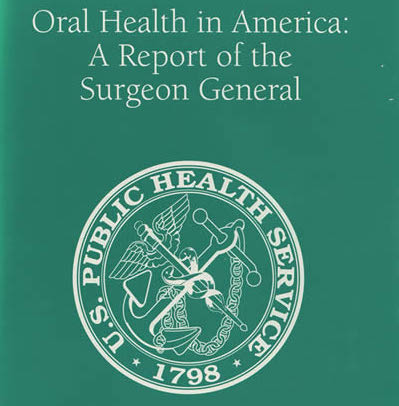Nearly two decades ago, David Satcher, who served United States Surgeon General from 1998–2002, commissioned a report on oral health in America. The primary message of the report, Satcher said, was that oral health is critical to overall health and wellbeing.
“Without oral health, you’re not healthy,” Satcher said. “And oral health is about more than just the health of the teeth.”
Almost 20 years later, the current Surgeon General has announced another commissioned report on oral health. This upcoming comprehensive study will follow up on the original report, which was a first-of-its-kind publication examining how oral health relates to overall wellbeing.
Satcher said the new report is needed, because major oral health challenges still exist. For example, there are disparities in who has access to oral health care, in terms of race, age, and geographic location. “There are some states that have no dentists at all,” Satched said. This lack of access can lead to cavities, toothaches, periodontitis, and tooth loss.
“There are 30 to 35 percent of people who are edentulous, meaning they don’t have their healthy teeth,” Satcher said. “This affects their ability to eat, speak, smile. There are a whole list of ways people suffer.”
Kerry Maguire is the director of ForsythKids at The Forsyth Institute, the only independent research institute in America specializing in oral health and its impact on overall wellness. ForsythKids is an initiative that provides preventive dental care to Massachusetts children of all ages at schools, day care centers, neighborhood facilities, summer camps and public events.
Here, Maguire explains why the newly commissioned report is significant, and dives into the national and global oral health issues that still need to be solved.
Is it significant that this is the second Surgeon General’s report on oral health, following up on the first one that was completed in 2000?
Surgeon General’s reports are not issued for every disease. The fact that oral health has now had two Surgeon General’s reports commissioned indicates that the relationship of oral health to general health is now better recognized. It’s also an indicator that there is much more work to be done to bring oral health fully into the arena of general and systemic wellbeing, with a “call to arms” so to speak for potential partners.
What are some areas the report might focus on?
I think this report might reflect the growing interest in personalized health. In the United States, people living in poverty and communities of color are disproportionally burdened with dental decay, periodontal disease and oral cancer. We aim to deliver preventive measures to absolutely everyone, when in fact, there is some portion of the population that doesn’t need all we have to offer, and other groups that need everything and more. Salivary diagnostics and management of the bacterial communities of the mouth—called the oral microbiome—could help prevent disease and promote health based on an individual’s risk. This could also help re-distribute the available dollars for care, resulting in better and more cost-effective health outcomes.
Another area where there is room for improvement is coordination of care within the dental team and with our partners in primary care. Many states are now considering licensure of dental therapists, who have the potential to expand access to dental care. The incorporation of oral health services such as fluoride treatments at well-baby visits with the pediatrician is another adaptation. Finally, dental professionals could take their contribution to overall health beyond blood pressure checks to include tobacco cessation treatment, HPV vaccination and risk assessment for obesity and diabetes, and other serious health conditions.
Have we made good progress in the last 20 years understanding the connection between oral and overall health?
I think there is much more to be done in that area. If you’ve had a toothache, there’s no question that your oral health is related to your general health, because you can’t even think straight. For the subtler forms of dental disease, some evidence of causation and/or correlation exists for heart health, pregnancy, and diabetes. More research in those areas could help build the case for the role of oral health in overall health.
Have we made strides in preventative dental care since the first report came out?
The rate of tooth decay in American children is around 30 percent. It used to be higher, so we have made progress, or at least it’s leveled off. But for a truly preventable disease, that number is still strikingly high. There is much more preventative work to be done, whether it’s new ways of accessing populations that need care or new ways of delivering that preventative care.
We could also do more of what we already know works. A major focus of ForsythKids is ensuring children have sealants on their permanent molars. Sealants are a very effective but underutilized way to control dental decay. If every child had access to dental sealants, that would make a big difference.
What’s the connection between oral health and quality of life?
When people lose teeth, limitations follow. Nutrition can be affected because of what they can or cannot eat. Poor aesthetics can mean they have trouble finding a job, especially when interaction with the public is required. People often lose teeth one at a time, so a lower quality of life occurs in small, but often irreversible increments. Tooth loss is correlated with age, and because the U.S. has an aging population, I think we can expect to see more people trying to maintain the oral health they have into later life and more people struggling with oral function in general.

